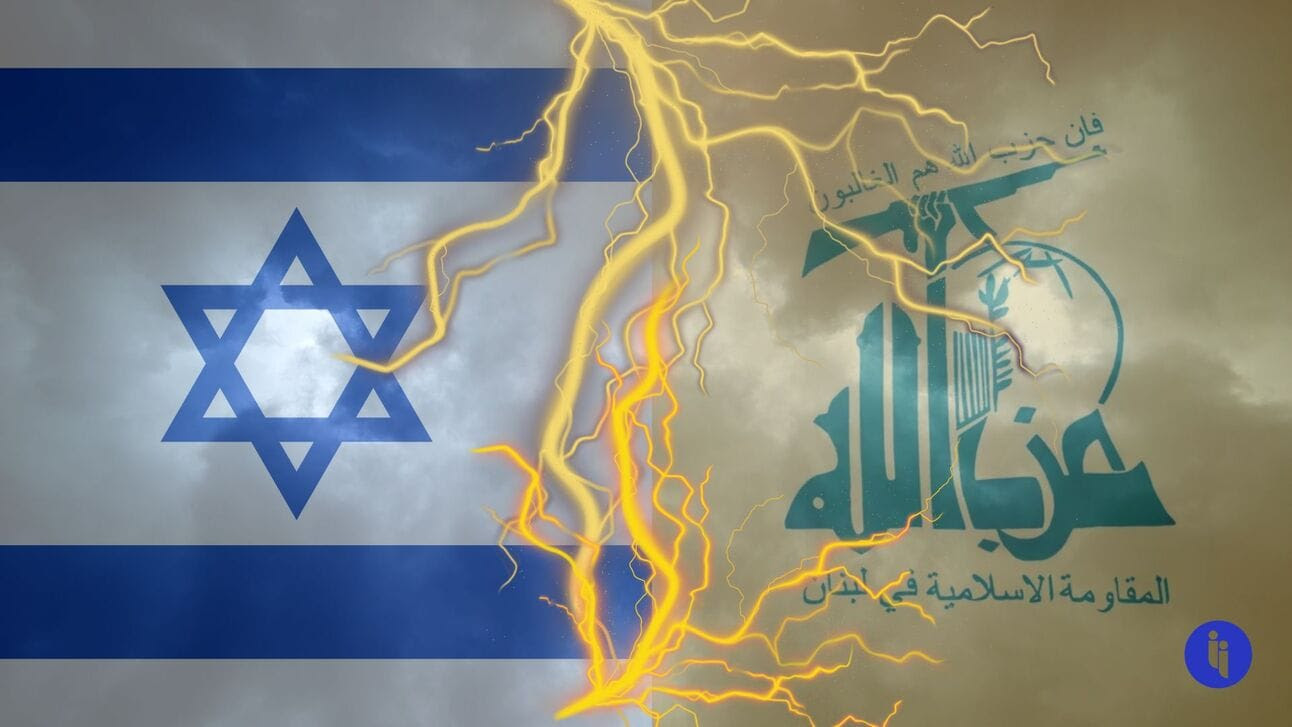Israeli generals have now reportedly approved “operational plans” for a Lebanon offensive. Officials issued the statement on Tuesday night after Hezbollah, the Lebanon-based Islamist group, dropped a nine-minute video of purported drone footage above military and civilian sites in Israel.
As if that message wasn’t clear, the head of Hezbollah, Sayyed Hassan Nasrallah, then popped down to the local TV studio Wednesday and spelled it out: while Hezbollah doesn’t want “total war”, nowhere in Israel will be safe in an all-out conflict.
What a week, huh? And to quote the famous meme, that was just Wednesday.
Stay on top of your world from inside your inbox.
Subscribe for free today and receive way much more insights.
Trusted by 114,000+ subscribers
No spam. No noise. Unsubscribe any time.
Hezbollah (meaning ‘Party of God’ in Arabic) is an Iran-backed Shia Islamist movement with a major presence in Lebanon (particularly along its southern border with Israel).
It emerged out of the 1982 Lebanon War, filling the vacuum left there after Israel drove out Palestine Liberation Organization (PLO) forces, who had themselves been expelled from Jordan. The final trigger for Israel’s 1982 Lebanon invasion, after years of PLO skirmishes, was actually an attempted assassination of Israel’s ambassador in London – later linked to Iraqi intelligence!
Today, Hezbollah is so influential in Lebanon, it’s seen as “a state within a state”. It’s also seen – in whole or in part – as a terrorist organisation by 60 countries, and is widely known as an Iranian proxy.
Then came October 7th
The day after Hamas attacked Israel from Gaza on October 7th, Hezbollah fired rockets and artillery against Israeli sites from southern Lebanon “in solidarity with the victorious Palestinian resistance”. And Israel and Hezbollah have exchanged near-daily fire ever since, displacing ~155,000 civilians on both sides of the border, while killing hundreds in Lebanon and dozens more in Israel.
Israel has been demanding Hezbollah pull back to create a buffer, but the group says there’ll be no deal until Israel ceases fire in Gaza. And things escalated further last week after Israeli strikes killed a senior commander of Hezbollah, which responded with hundreds of rockets and its sizzle reel of drone footage.
So will this result in a wider war?
Who – and we cannot stress this enough – knows.
There are reasons to believe neither side really wants a war:
- Hezbollah knows it’d be deeply unpopular in Lebanon, where folks are already grappling with an economic meltdown and political paralysis, and
- Israel is wary of a second front against a formidable foe, which claims to have ~150,000 rockets and ~100,000 experienced troops (more than Lebanon’s army).
So against that backdrop, it’s quite possible this is all signalling by Israel and/or Hezbollah to shape events in their favour: for Israel, that means pressuring Hezbollah into some kind of settlement to stabilise their shared border; for Hezbollah, that means pressuring Israel into some kind of ceasefire with Hamas.
But, it’s also possible this is now becoming something more.
- Israel’s calculations around its own security have shifted dramatically since October
- The displacement and destruction along the border is already significant
- Recent polls suggest 60% of Israelis want to move against Hezbollah, and
- Some public figures argue Israel can’t be secure until that happens.
But for now at least, France is still pushing its 10-day de-escalation plan, and US presidential envoy Amos Hochstein is re-joining the shuttle diplomacy in the region, calling for “urgent” de-escalation.
INTRIGUE’S TAKE
There’s plenty of history here, but it offers us mixed lessons.
Israel has invaded Lebanon twice in pursuit of the PLO (1978 and 1982) and fought another three times in pursuit of Hezbollah (1993, 1996, and 2006). The last deadly war, after Hezbollah captured two Israeli soldiers and killed several others, basically ended in a draw – the UN ordered Israel’s withdrawal and a buffer zone on the Lebanese side of the border (which Hezbollah routinely violates, despite the presence of UN peacekeepers).
Israel’s military has sought to learn lessons from that conflict, but so has Hezbollah (with Iran’s help). And the result is that, realistically, any future major war along the border will now be much more devastating than the last.
Also worth noting:
- In its 2009 manifesto, Hezbollah sought to tone down its original ambition to create an Islamic Republic in southern Lebanon (home to a substantial Christian population), but reiterated that Israel remains a “constant threat” and its US ally is an “enemy of our nation”.
- In Nasrallah’s Wednesday video address, he also threatened Cyprus for the first time, warning the Mediterranean island and EU member against allowing Israel to launch operations from its territory. Cyprus and Israel have strengthened their defence ties in recent years.









